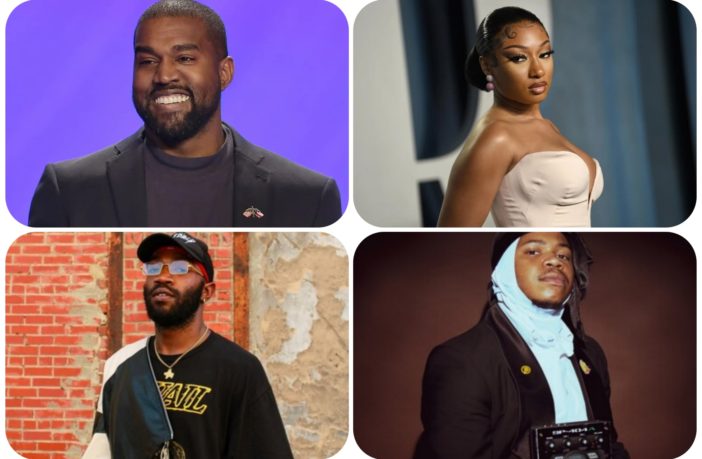By Aria Brent,
AFRO Staff Writer,
abrent@afro.com
The hip-hop genre and artists alike are celebrating 50 years of influence and impact in 2023. Rappers have undoubtedly shaped culture and helped to shape the perspective on the power of the Black dollar.
In 2022 hip-hop generated $15.9 billion off of music streams and purchases alone, according to the Recording Industry Association of America (RIAA).
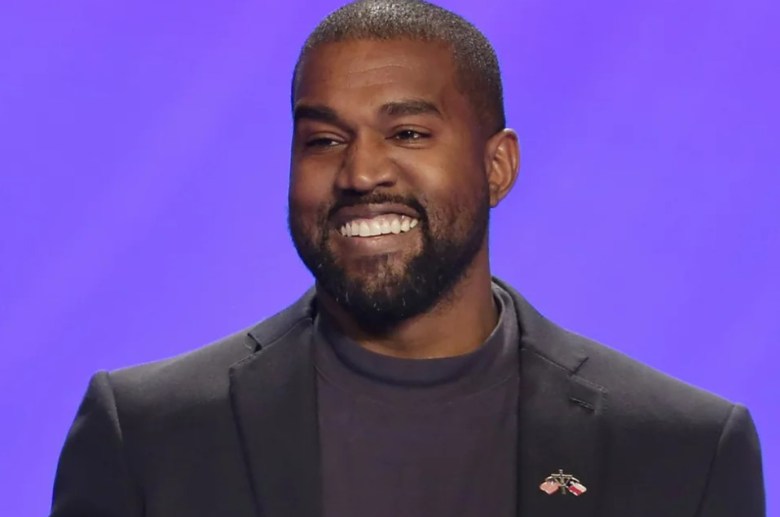 Kanye West earned $170 million from his music career in 2020. West has been a staple in the music industry for more than two decades as a producer and as an artist. (Photo courtesy of the Associated Press Michael Wyke)
Kanye West earned $170 million from his music career in 2020. West has been a staple in the music industry for more than two decades as a producer and as an artist. (Photo courtesy of the Associated Press Michael Wyke)
“There’s a lot of opportunity in music. [We need] workers within the industry to keep all of this afloat,” stated Thaerin “Fluseph” Generette. “I will say though, a lot of the positions that people want within hip-hop aren’t as easily attainable as they may seem. I feel like everybody either wants to be an artist or be a CEO of a company.”
Generette has been working as an audio engineer, producer and videographer in the hip-hop industry for nearly seven years.
Hip-Hop has humble roots, however the multi-billion dollar industry is now known for the flashy and luxurious lifestyles many of its artists speak of in their music. As social media has become more popular, it has created a space for up-and-coming artists to share their music in a whole new way.
Artists such as Jack Harlow, Lil Uzi Vert and Megan The Stallion have benefitted from their songs being used on platforms such as TikTok and Instagram. Meanwhile other artists like PontiacMadeDDG and Chris Sails got their start as social media personalities and then transitioned into music due to their already established fame.
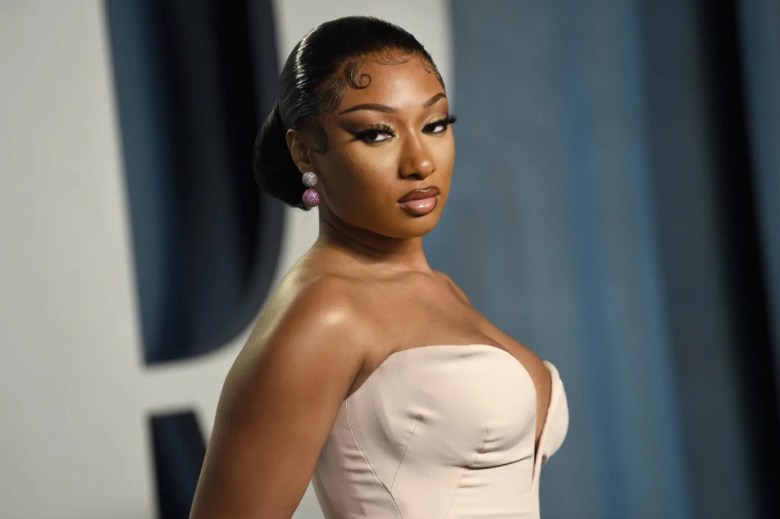 Megan “Thee Stallion” Pete was a keynote speaker at the Forbes Under 30 Summit, where she spoke on the topic of generational wealth. (Photo courtesy of the Associated Press Evon Agostini)
Megan “Thee Stallion” Pete was a keynote speaker at the Forbes Under 30 Summit, where she spoke on the topic of generational wealth. (Photo courtesy of the Associated Press Evon Agostini)
“I believe that this new wave of influencers-turned-rappers can generate wealth, but it’s taking some hits on the culture and the music itself,” said Jeffrey “DEONRAPS” Chambers. “Hip-hop was never supposed to be a get-rich-quick scheme and as people begin to use it to replace a nine to five, it makes it hard to distinguish who is in it for the culture and who’s in it for the bread.”
Chambers is a native of Queens, N.Y., and started off his hip-hop career initially working in media. While in school studying photography, he took advantage of the chance to use a camera and shoot his own music videos. He noted that photography helped him pursue hip-hop on a serious level.
In the era of digital content creation and social media monetization, hip-hop has found itself in the center of it all. With careers like podcast host, social media manager and content creator now existing the possibility of profiting off hip-hop is attainable to more people.
People have been able to replace their typical nine to five jobs with these new-aged positions and still create solid foundations for themselves and their families. Generette spoke to the AFRO about how people are able to have an impactful career in hip-hop despite without rapping or being in an executive position.
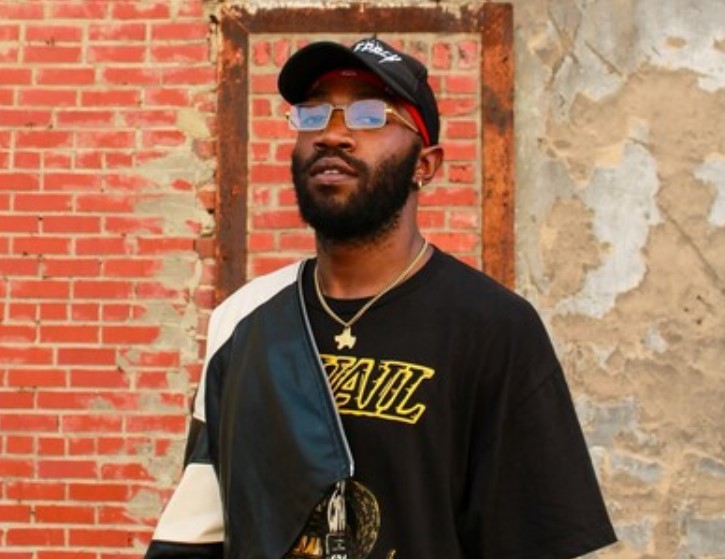 Devin “DevMacc” Cousin is a hip-hop and R&B artist from Jackson, Miss. who has worked with rappers such as Akeem Ali. (Photo courtesy of DevMaccc photographed by Cynthia Gooden)
Devin “DevMacc” Cousin is a hip-hop and R&B artist from Jackson, Miss. who has worked with rappers such as Akeem Ali. (Photo courtesy of DevMaccc photographed by Cynthia Gooden)
“I know a few producers actually, who just make beats and they’re making lots of money just off of streaming, content creation and stuff like that. There’s so many different ways to make money,” said Generette.
Much like Generette, Chambers also is happy to see more jobs available in the hip-hop industry, although he does feel like the appreciation and integrity of hip-hop music is getting lost along the way.
“The way hip-hop has evolved, it’s created so many jobs but it’s also been kind of bittersweet,” said Chambers. “I think we’re making money right now in multiple ways [via]the internet with outlets like Tik Tok. It’s like it stopped being about the music at some point and people are just becoming influencers.”
Generette further noted that these careers often are a double-edged sword because it then causes people to believe that breaking into the hip-hop industry is easy without a full understanding of how the process actually works. He wants people to get into these positions well equipped and with a real chance of making a living.
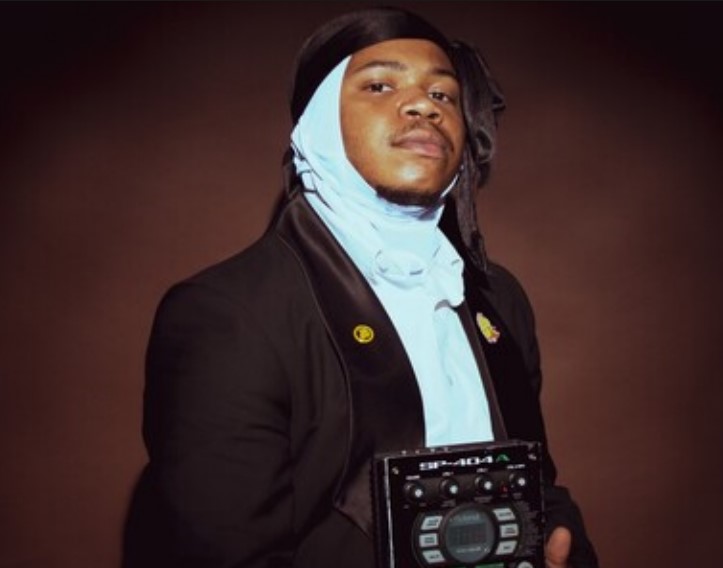 Thaerin“ Fluseph” Generette is a multi-disciplinary hip-hop artist and a member of The Downbeat Crew, a band out of Jackson, Miss., which has created its own musical style called “NuNeoSoul.” (Photo courtesy of Fluseph photographed by DeJarius Evans)
Thaerin“ Fluseph” Generette is a multi-disciplinary hip-hop artist and a member of The Downbeat Crew, a band out of Jackson, Miss., which has created its own musical style called “NuNeoSoul.” (Photo courtesy of Fluseph photographed by DeJarius Evans)
“There’s always going to be an era of delusion to make the audience feel like,’yeah, I can do this easily,’ or ‘yeah, I can acquire this very quickly.’” explained Generette. “That’s how they sell it. If they make it look very easily attainable, then you’re gonna believe it. I feel like that’s how the industry got to where it is. The easier you make it look to other people, the more they’ll want to invest in or try to do the same thing.”
Many independent and new hip-hop artists have to work as both an artist and a content creator to help market their music. It was noted that it isn’t a chore but it also isn’t something many artists expected to have to do.
“I can only speak for myself but I’ve noticed that for a lot of creators, trying to work in your field of artistry and create content is such a hassle,” explained Devin “DevMaccc” Cousin. “I don’t mind creating content but I never thought it was going to be such a vital part of my marketing and have such an impact on artist careers.”
Cousin is a hip-hop and R&B artist from Jackson, Miss. His interest in rapping was first pursued during his childhood but he’s been seriously making music for about nine years.
The City with Soul native, discussed the power of social media and how he’s seen it benefit people in his close circle. Cousin explained that consistency and proper marketing techniques can truly catapult artists into positions to create generational wealth, especially in the world of hip-hop.
“My good friend Dear Silas put out a song called ‘I Ain’t Stressin Today’ and the way I’ve seen him capitalize on this one song alone is insane.Whether it’s merchandise, or the whole viral sensation thing,” explained Cousin. “I’ve seen him consistently push a product for over a year and so many people latched on to it, and helped build his brand. Just from him pushing one song because he knew it was a good product.”
Kanye West stated “Havin’ money’s not everythin’, not havin’ it is,” in his song “Good Life” off his 2007 album “Graduation” and that’s a very simple way of explaining one of life’s most complex necessities: financial stability. However, Generette feels that one way you can create financial stability and maintain it is by putting your money into things that guarantee a return on your investment.
“I know what it’s like to be poor but at the same time, I feel like there are some things that you can hold off on, for the betterment of our people,” Generette declared. “Buy that community center that you used to walk by all the time in your own city instead of spending it on a vehicle.”
Hip-hop has been a cash cow for a long time, and the use of social media has only made it easier for people to profit off of it. Although people like Chambers are fearful that the art will disappear and deplete in value as more people gain quick access to it, Cousin believes that it can maintain its worth while still being a source of serious revenue for people.
“Someone told me ‘Each piece, each song, each poem that you create, treat it like your child,” said Cousin. “‘If you take care of it, like it needs to be taken care of when it gets older it will be able to take care of you.’”
